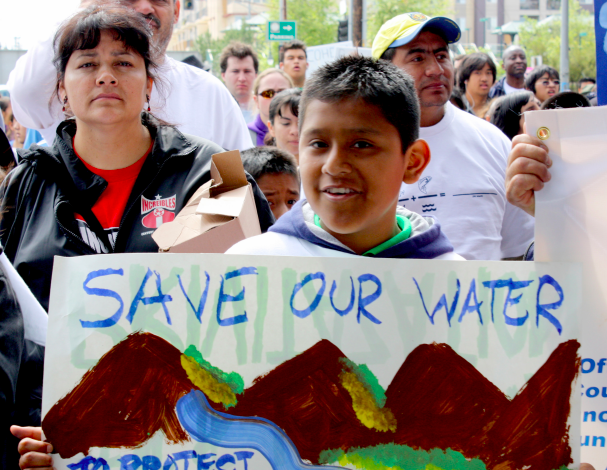The Unitarian Universalist Service Committee advances human rights through grassroots collaborations.
The Invisible Crisis

Water is essential for life, but universal access to safe drinking water and adequate sanitation has not been achieved in the United States. Lower income Americans and those facing economic crises struggle to pay rising water and sanitation costs, resulting in shutoffs and other negative consequences. For many Americans, the problem begins before they even face the question of water quality – before they turn on the faucet. It starts with whether there is any water coming out of the tap and how much it costs.

UUSC’s research sheds light on the breadth of the country’s water crisis, pinpoints drivers of inequality, reveals damaging impacts people face when they cannot afford or access basic water and sanitation services, and argues that real affordability programs can and must be established to ensure all people in the United States have access to needed water and sanitation services.
Although some strides have been made at the local level to introduce and advance legislation to address water affordability, there is much work to be done. UUSC’s research-based recommendations include:
- Banning water shutoffs for nonpayment when customers do not have the ability to pay. At a minimum, mandate protections against water shutoffs for low-income children (under age 18), individuals over 65 years old, persons with disabilities, pregnant and lactating women, and persons with chronic and catastrophic illness
- Requiring regulatory agencies to study and work to remedy the impact of unregulated pollution on the cost of water and sanitation for customers
- Prioritizing and targeting water and sanitation funding to those who do not have it and vulnerable populations first, followed by other investments as needed
- Adopting the human right to water and sanitation in domestic law with clear enforcement mechanisms and remedies.